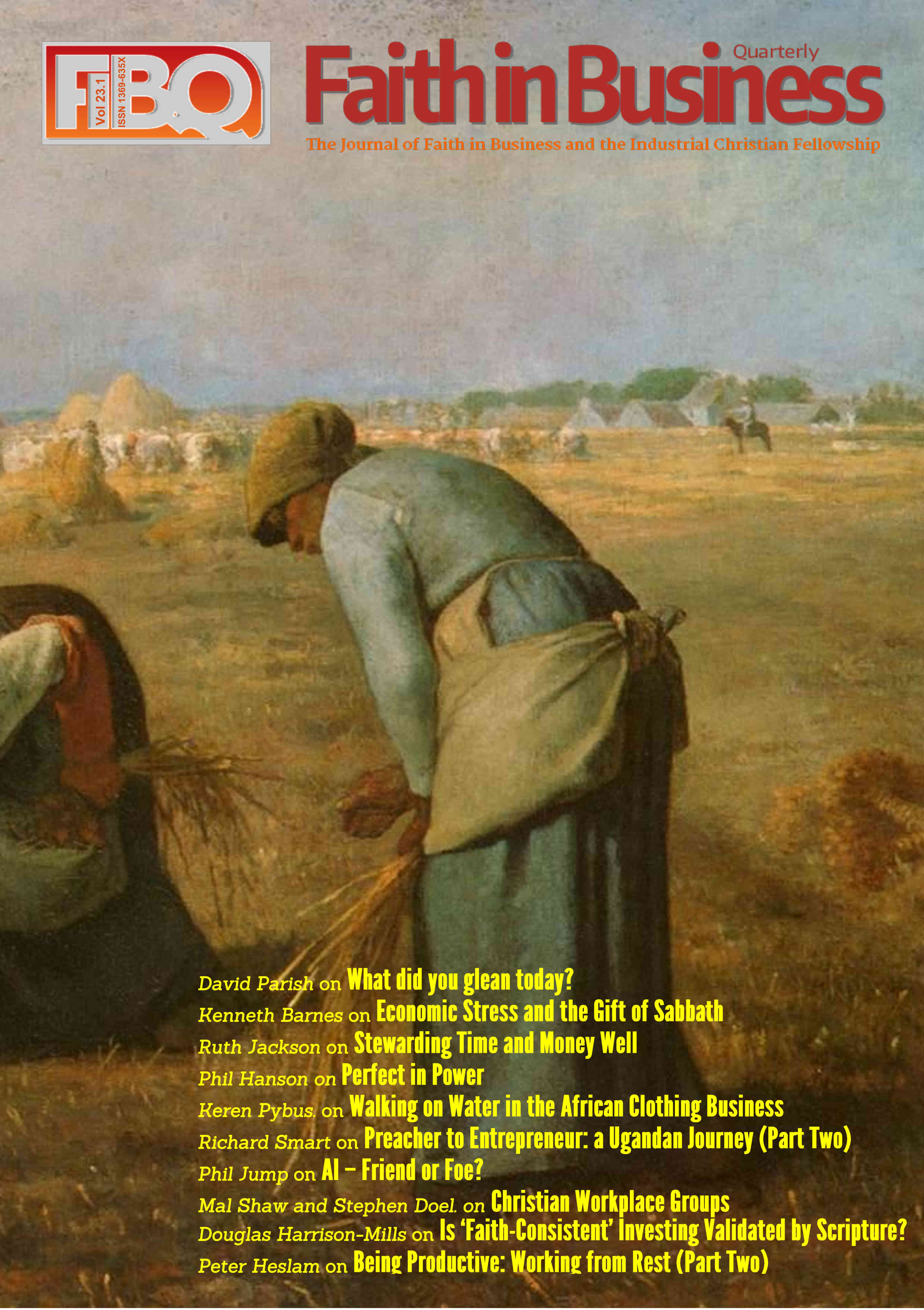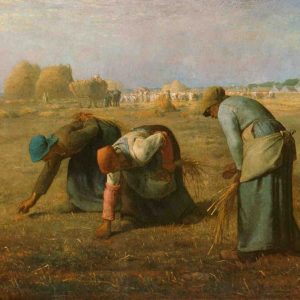Description
In This Issue…
Millet’s great painting The Gleaners provides the starting-point for David Parish’s reflection on the ancient practice of gleaning, which enshrines the principles of compassion, care and commitment for the needy. David draws on his local community experience to make several imaginative suggestions about how we might constructively practise gleaning today.
The theme of Sabbath, focus of the forthcoming Faith in Business Retreat, recurs in three articles. Ruth Jackson of Stewardship helpfully summarises the biblical perspective on work and rest. Kenneth Barnes from the Mockler Center argues that the Sabbath provides a powerful antidote to the yoke of Mammon and various types of stress at work. Peter Heslam shows how rest and productivity come together in a beautiful if paradoxical way in the story of Jesus and the Samaritan woman.
While Kenneth’s piece projects a rather bleak picture of Christians’ current situation in the workplace, Mal Shaw and Stephen Doel report encouragingly on how Christian Workplace Groups (with the support of Transform Work) are making a positive impact. Diversity and Inclusion policies are giving these groups a more recognised place in many organisations.
We include two articles on sterling work taking place in Africa. New FiB Trustee Keren Pybus presents a positive and heart-warming account of her experience in founding and running Ethical Apparel Africa – not glossing over the major challenges this has entailed. Richard Smart offers a follow-up report to the last issue’s article about projects in rural Uganda.
Two of our regular contributors write short pithy pieces: Phil Hanson on caring leadership which is ‘perfect in power’ and eschews micro-management; Phil Jump on AI, a topic in which ICF is taking a lively research interest. Peter Warburton and Mats Tunehag weigh in with discerning reviews of two books you might have missed: Toxic Legacy, concerning the destructive impact of the weedkiller Glyphosate, and When Jesus Calls, from the Business as Mission stable, about transforming businesses which are expressions of God’s kingdom.
Finally, investment Banker Douglas Harrison-Mills offers a novel interpretation of the early chapters of Acts. He argues from detailed analysis of the Greek text that various passages which appear to describe charitable practice in the early church are better understood in a more commercial way. You may or may not be persuaded, but this article repays close attention with Bible in hand.
The Editors





